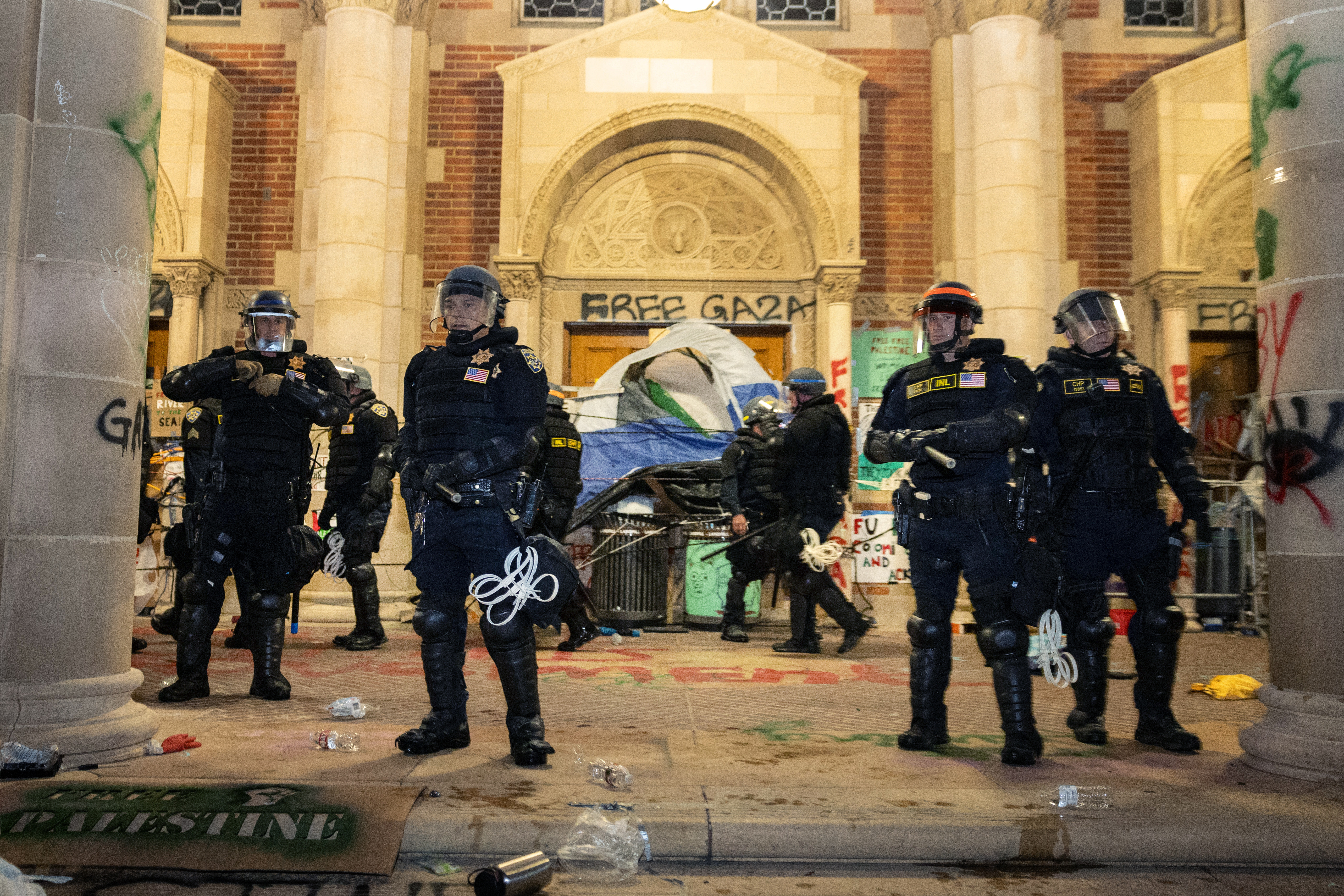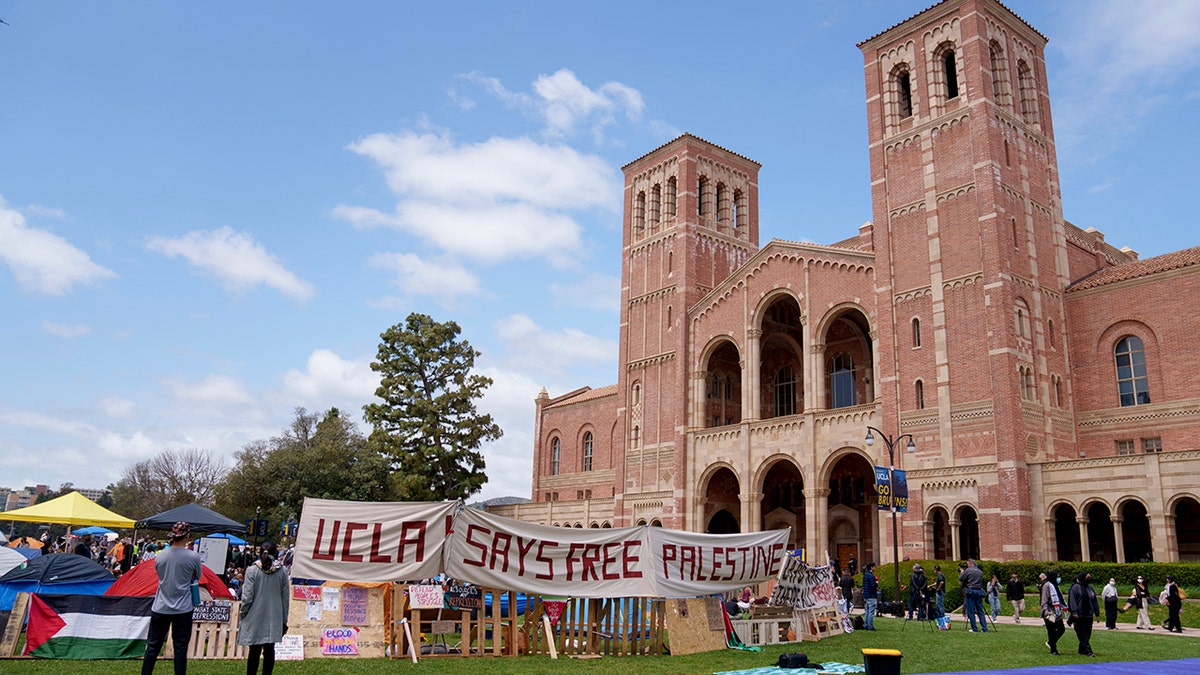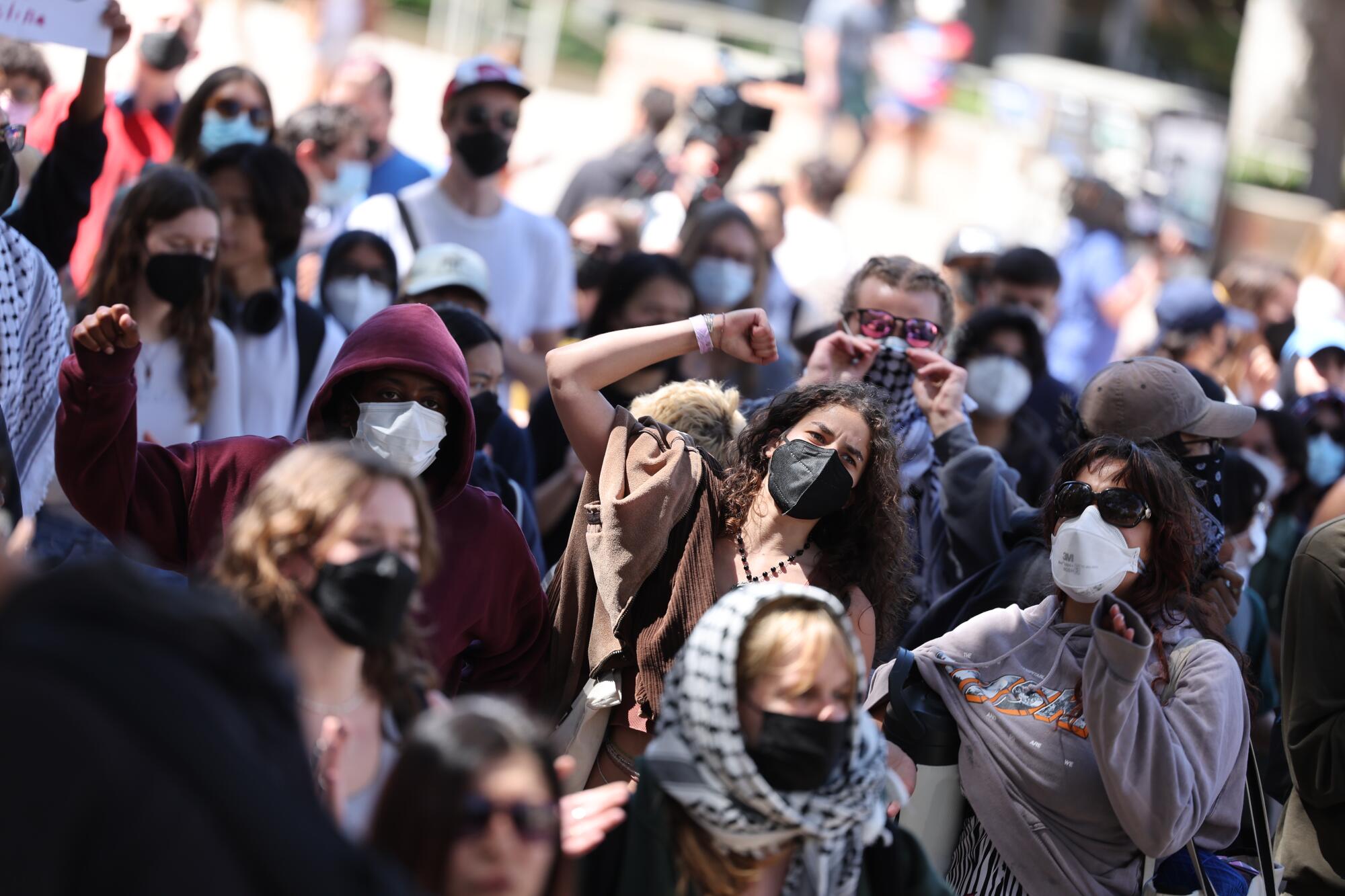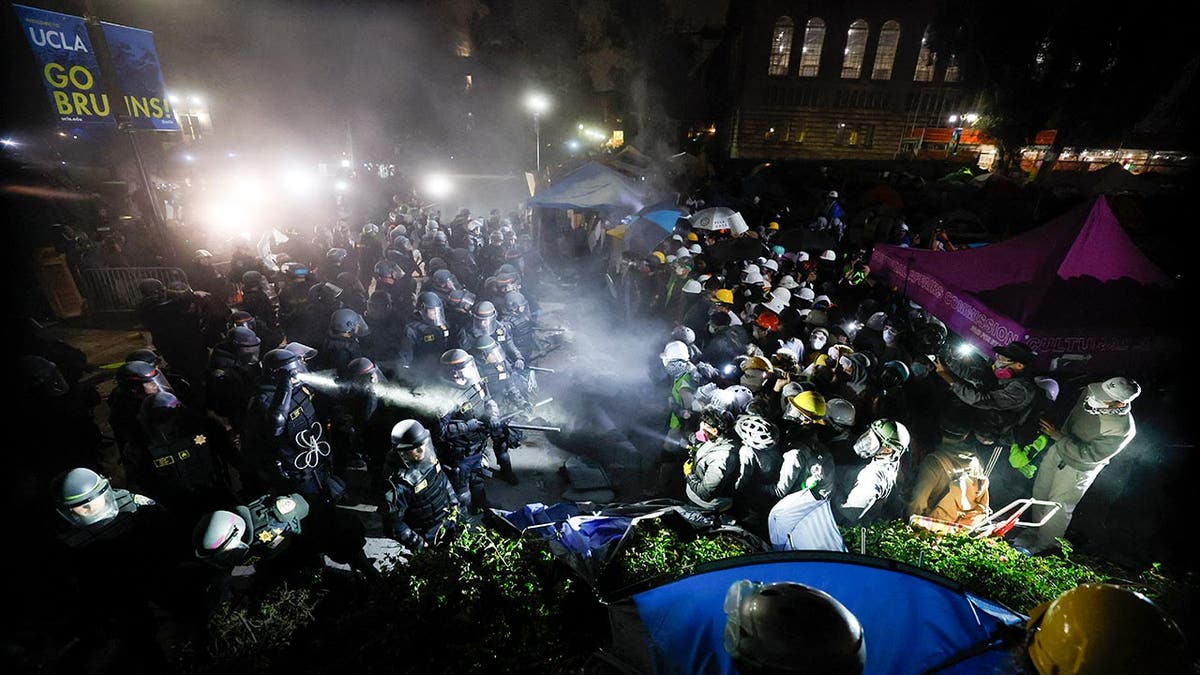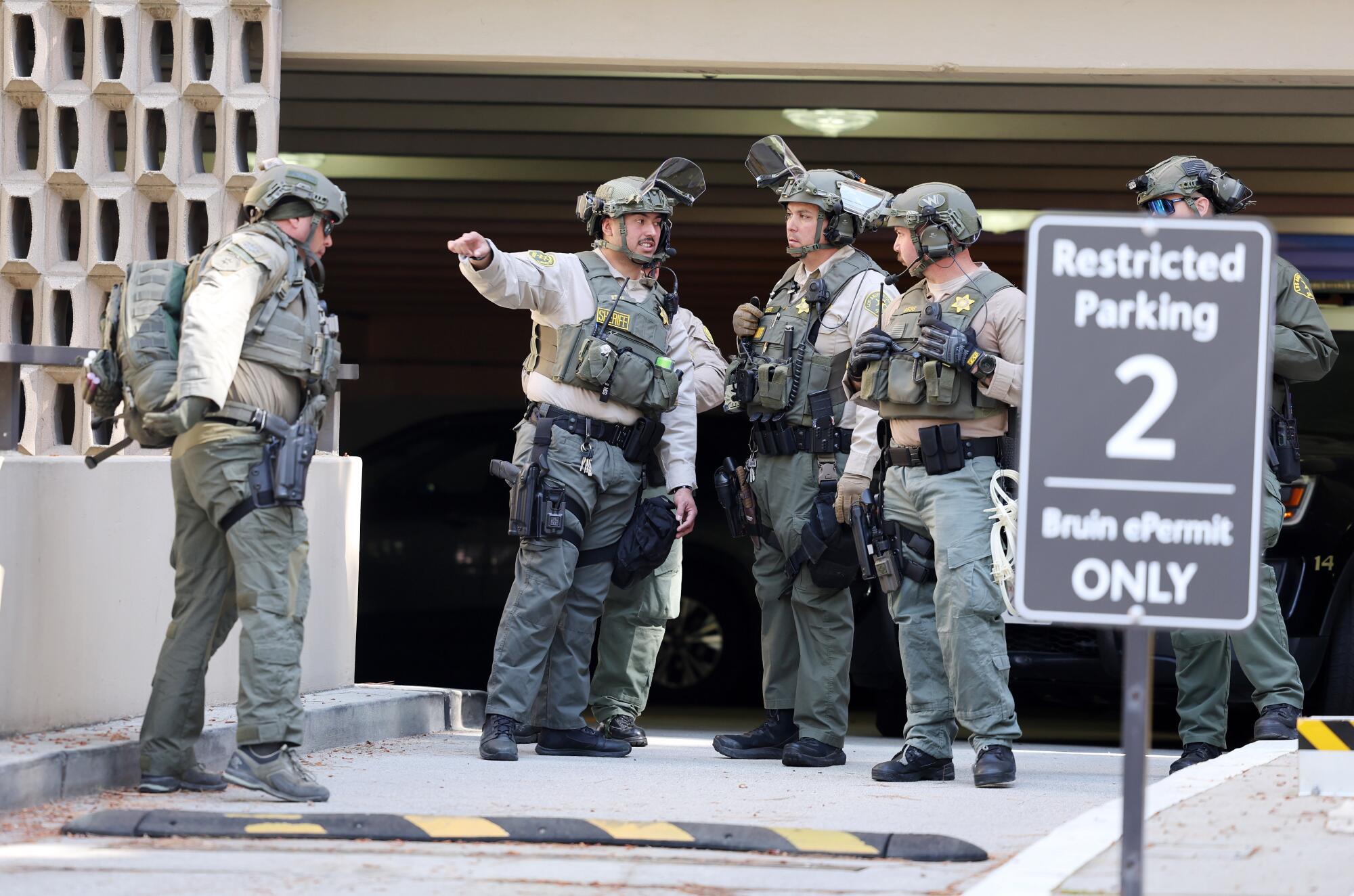
Protests and counter-protests at the University of California, Los Angeles (UCLA) and the University of California, San Diego (UCSD) resulted in over 100 arrests amid tensions surrounding the ongoing Gaza war. At UCLA, Chancellor Gene Block contacted the FBI and the LA District Attorney's Office to investigate a group of pro-Israel counter-protesters who allegedly attacked an anti-Israel campus encampment last week. The incident led to violent clashes between both groups, with reports of fights, fireworks being shot at demonstrators, and other items being thrown.
At UCSD, 64 people were arrested as a growing pro-Palestinian encampment was declared illegal by the chancellor and cleared out Monday morning. The arrests included 40 students. Classes at UCLA were moved online for the rest of the week as a security precaution following last week's violent mob attack on a pro-Palestinian encampment.
UCLA Chancellor Gene Block and Los Angeles Mayor Karen Bass have spoken to District Attorney George Gascón about ensuring that those responsible for instigating violence will be prosecuted to the fullest extent of the law. The university and its police force are leading the investigation, with assistance from the LAPD and FBI.
Protests at both universities began after hundreds of anti-Israel agitators set up encampments on their campuses to demand that their respective universities divest from companies and institutions linked to Israel. The tensions escalated when pro-Israel counter-protesters arrived, leading to violent clashes between the two groups.
The incidents at UCLA and UCSD are not isolated cases. Protests have also taken place at other University of California campuses, including UC Irvine, UC Davis, UC Santa Barbara, and UC Berkeley. USC has also seen protests in solidarity with the Palestinian cause.
The Los Angeles Times reported that over 100 protesters were arrested at both universities on Monday. Among those detained was a 28-year-old graduate student named Marie Salem, who was taken into custody while peacefully protesting at UCLA. The arrests came as a surprise to many students and activists, who saw it as an attempt to intimidate and harass them.
The incidents have sparked heated debates about freedom of speech, the role of universities in political issues, and the use of force by law enforcement against protesters. Some argue that universities should allow peaceful protests while others believe that violence and disruptions are unacceptable.

